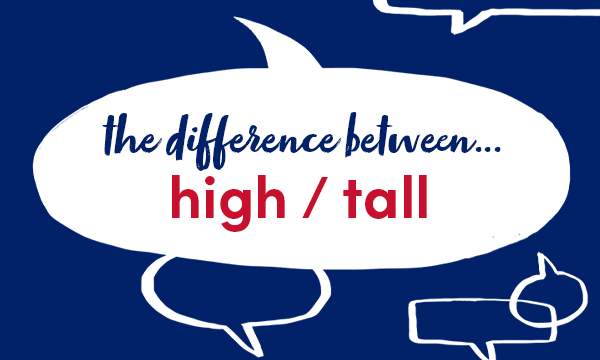This week we are looking at two words which are sometimes confused by learners of English: high and tall.
high

You use high to describe things which measure a larger distance than usual from the bottom to the top. For example, you talk about a high hill or a high fence.
…the high mountains of northern Japan.
…the high walls of the prison.
High also means that something is a long way above the ground. For example, you talk about a high window or a high shelf.
It was a large room with a high ceiling.
tall

You use tall to describe things which are higher than usual, but which are also much higher than they are wide. So, for example, you talk about a tall tree or a tall chimney.
Insects buzzed in the tall grass.
We saw several birds, including a tall heron standing on one leg.
You always use tall when you are talking about people.
Andreas was a tall handsome man.
She was a young woman, fairly tall and slim.
Find out more in our English Usage article.
This blogpost is based on Collins COBUILD English Usage, written for learners of English. For more examples of English usage points, please visit: https://grammar.collinsdictionary.com/english-usage.
All opinions expressed on this blog are those of the individual writers, and do not necessarily reflect the opinions or policies of Collins, or its parent company, HarperCollins.




collins_dictionary_official
The home of living language. #wotd #wordlovers #collinsdictionary
Read our word of the week definitions and blog posts: